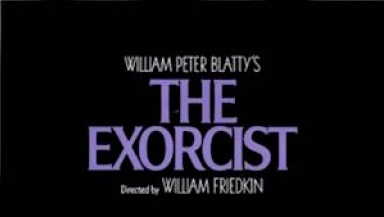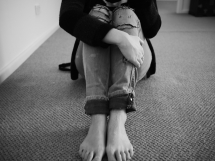
A YouTube video has popped up which many claim to show a woman in Spain possessed by an evil spirit.
Named Carmela, the woman is in the back of an ambulance having some sort of seizure while nurses try to control the situation. Her eyes roll, she lurches backwards and forwards and speakcks in a deep, growly voice. "I'm going, she's going to hell!" she says. "This girl doesn't exist now. It doesn't exist."
As one of the nurses asks whether she is giving birth, she's heard saying, "My father is coming for him." She glares at the nurse and says, "He is mine, he is for me."
It's undeniably disturbing. Is it evidence of demon possession? Probably not.
The truth is that it sounds more like Hollywood's idea of evil than the real thing. It owes a lot to the classic 1973 film The Exorcist, which featured a supposedly demon-possessed girl afflicted by everything from projectile vomiting to being able to turn her head 360 degrees. Oh, and she did the voices, too.
So what about poor Carmela, and what does demonic affliction really look like?
First, we should be very, very slow to think someone who presents as having a mental illness of some kind is suffering from a purely spiritual condition. Our minds go wrong just as our bodies do, and while prayer and Christian counselling can be very helpful, you can no more fix a broken mind through prayer than you can fix a broken leg. It isn't different because the problem is in someone's head. Yes, miracles can happen, but imagining it's somehow easier for God to fix a mental problem than a physical one doesn't make much sense.
Second, we should be very wary about diagnosing something as demonic oppression based on a film script. The broken phrases uttered by poor Carmela don't make much sense unless they're filtered through memories of The Exorcist; it's unlikely anyone in 1972 would have given them that meaning. The danger is that we see something we don't understand and leap to the wrong conclusion. It's important to be thoroughly biblical in our approach.
Third, we should not be too quick to dismiss the reality of evil. Evil in the New Testament is presented as a living and personal force, which manifests itself in the destruction of the image of God in human beings. It destroys the mind and the body. In a sense, everything that does that – like drug addiction or violence or injustice – is demonic. But sometimes "normal" human wickedness overbalances into something worse, and it's then that language about the demonic is appropriate. Sometimes in the Bible stories are told in the context of demonic activity that today we'd describe as cases of mental illness. But that doesn't mean there's no such thing as the demonic.
Fourth, we shouldn't let extreme Exorcist-type cases blind us to the reality of evil elsewhere in human experience. Something doesn't have to be dramatic to be demonic. We recognise the evil in someone like Richard Huckle, given life imprisonment for his crimes against children. We may not instantly recognise it in the case of children who are never physically harmed but who on a deep psychological level are terrified of their parents' anger.
Fifth, we need to become sensitised to the presence of evil, but wise in how we react to it. One of the most dangerous and dishonest reactions is to excuse evil, in ourselves or in other people, by blaming it on the devil. But we are responsible for our own behaviour. When we do wrong, no one makes us do it; we choose. It's harder for some people to choose to do right than it is for others, but one thing's for sure: the devil does not make us do it.
The original book The Exorcist by William Peter Blatty, on which his film is based, is thoughtful, intelligent and theologically informed. He begins it with a brief list of atrocities, without any comment. His implied question to the reader is, "Are human beings capable of this as human beings, or is there something more going on?" It's a good question, perhaps best answered in the words God speaks to Cain: "If you do not do what is right, sin is crouching at your door; it desires to have you, but you must master it" (Genesis 4:7).
Follow Mark Woods on Twitter: @RevMarkWoods


















